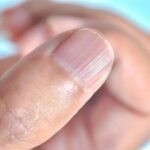That familiar pop or crack when you stand up or stretch? It’s a common experience, leaving many wondering, “Why Do Joints Pop?” While often harmless, understanding the causes behind these sounds can help differentiate between normal joint noises and those requiring medical attention. This article explores the science behind popping joints, addresses common myths, and guides you on when to seek professional advice.
The Mechanics of Joint Popping
Joints, the connections between bones facilitating movement, are complex structures composed of cartilage, synovial fluid, ligaments, and tendons. Synovial fluid, acting as a lubricant, allows for smooth movement. However, this fluid can sometimes trap gas bubbles. When these bubbles burst due to changes in pressure during movement, they create a popping sound. Think of cracking your knuckles – that’s the sound of gas bubbles collapsing in your finger joints.
Other sounds, like cracking or snapping, can result from tendons or ligaments moving over bone. This is common during repetitive activities like exercise. These sounds are typically harmless if not accompanied by pain or discomfort.
Is Joint Popping Harmful?
The key to determining if joint popping is harmful lies in accompanying symptoms. Harmless popping, often referred to as crepitus, doesn’t cause pain, swelling, or limited movement. It’s simply the release of gas or the movement of tendons and ligaments.
However, if popping is accompanied by:
- Pain: Sharp, throbbing, or persistent pain following a pop can indicate an injury.
- Swelling: Inflammation around the joint suggests potential damage.
- Stiffness: Difficulty moving the joint can point to underlying issues.
- Limited Range of Motion: Reduced ability to bend or extend the joint requires medical evaluation.
These symptoms may indicate a more serious condition like arthritis, cartilage damage, or a ligament tear, requiring professional medical attention.
Debunking Joint Popping Myths
Several myths surround joint popping, particularly knuckle cracking. Contrary to popular belief, cracking your knuckles does not cause arthritis. Scientific evidence disproves this long-standing misconception. Similarly, joint popping doesn’t inherently decrease flexibility. These myths often stem from associating the sound with potential harm, but in isolation, the sound itself is generally benign.
Preventing Joint Popping: Tips and Strategies
While harmless popping isn’t a cause for concern, you can minimize its occurrence through:
- Regular Stretching: Maintaining flexibility can reduce the likelihood of gas bubble formation.
- Targeted Exercises: Strengthening the muscles surrounding joints provides better support and alignment.
- Proper Posture: Correct alignment minimizes stress on joints, reducing the chance of popping.
When to Consult a Doctor
If joint popping causes concern, listen to your body. Persistent pain, swelling, stiffness, or limited range of motion warrant a visit to your doctor. Additionally, symptoms like joint locking, audible popping to others, or a popping sensation itself should be evaluated by a medical professional. Early diagnosis and treatment can prevent potential complications and ensure long-term joint health. Don’t hesitate to seek professional guidance if you have any doubts about your joint health.
